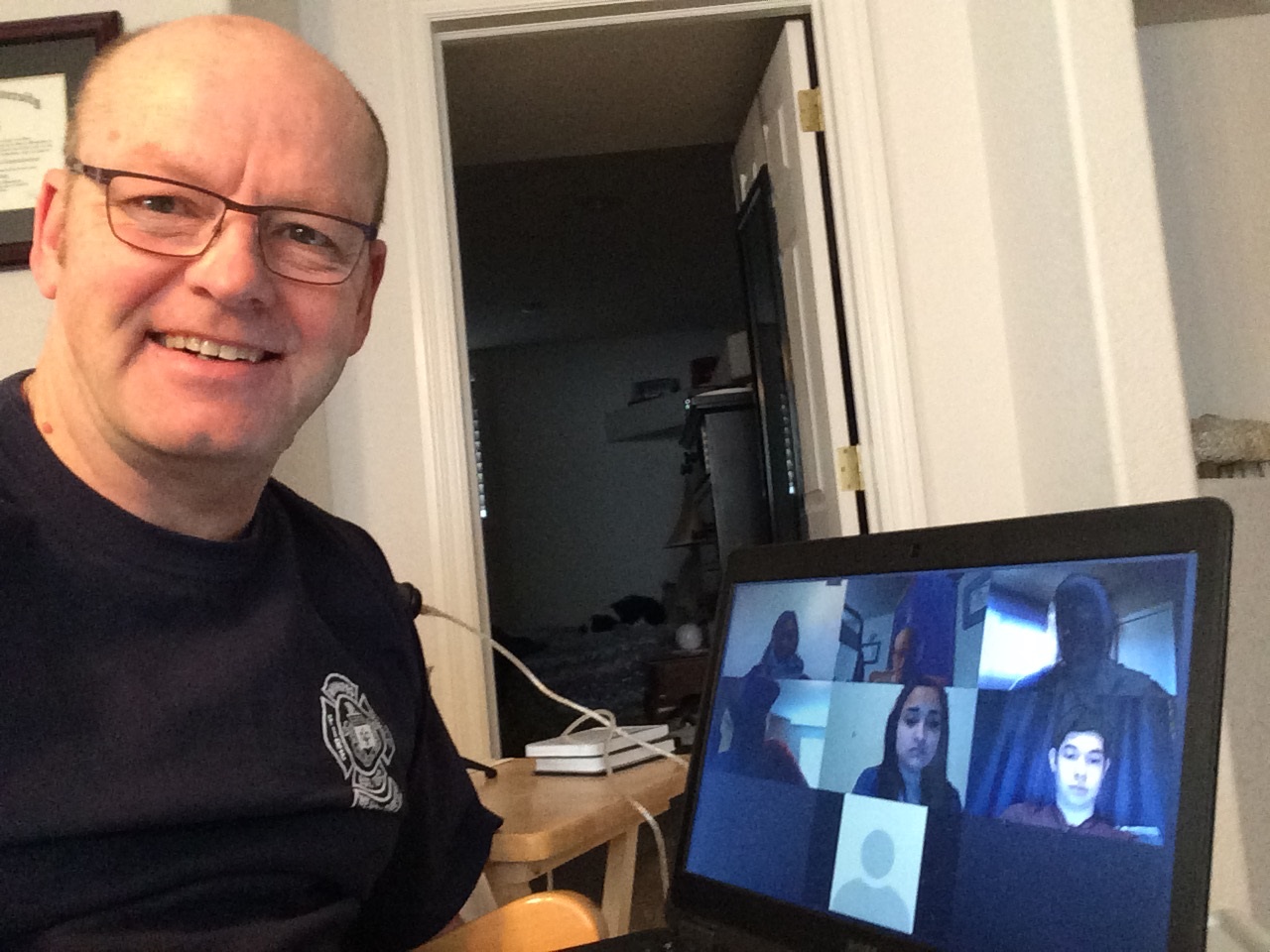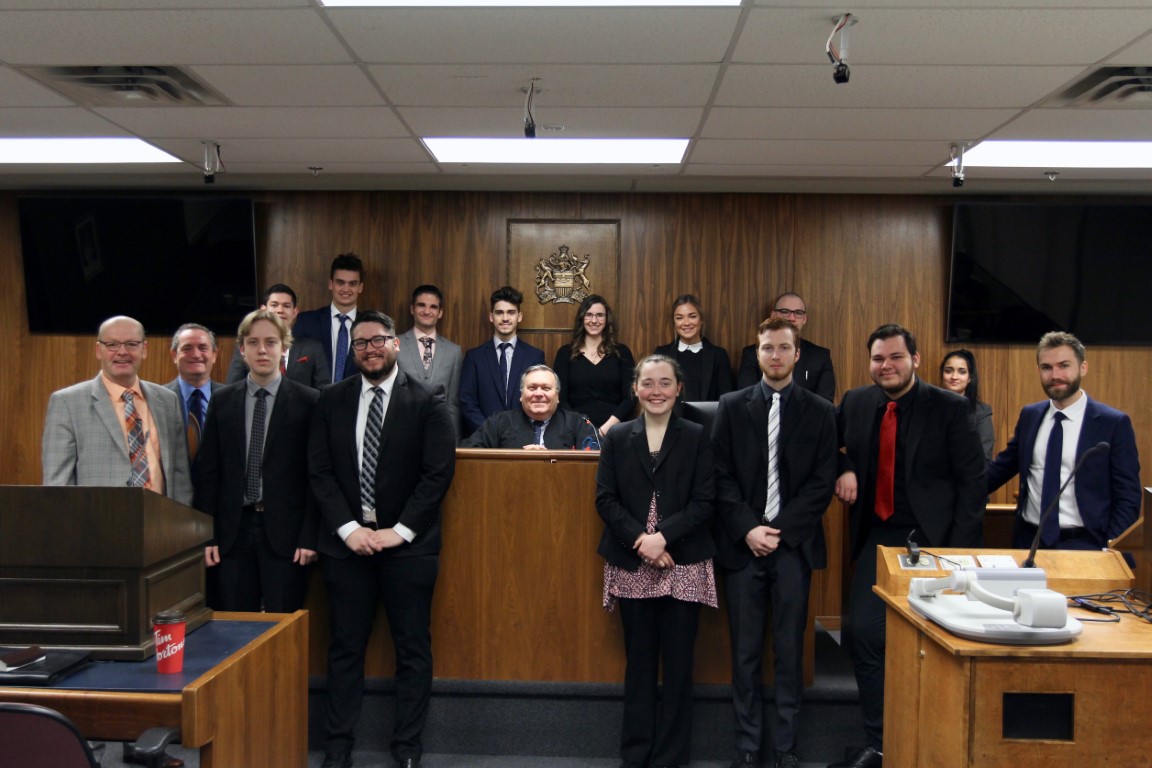
As far as educational rites of passage go, the experience Criminal Justice students have of “testifying” in the mock courtroom at Lethbridge College ranks pretty high.
The hands-on learning opportunity usually takes place in a small classroom at the end of the Andrews wing, which is outfitted with wood panelled walls, a leather-lined judge’s bench, a witness stand, a well-worn Bible, and leather-lined tables and podiums for the prosecutor and defence. It’s something Justice alumni usually list first when they talk about their best Lethbridge College learning experiences.
But when the COVID-19 global pandemic led to moving Lethbridge College classes online, right in the middle of a court case, instructor Murray Bartley was ready. He had been following the news in February and March and looking at the schedule of his course, and he knew he might not have time to finish the last trial.
So he approached Rebecca Helmer in the college’s Centre for Teaching, Learning and Innovation, for help creating a special Zoom classroom. He needed more than a typical online classroom to make the experience work, as he also wanted to a space where the “witnesses” (other students) could wait and not hear the testimony of earlier witnesses. Typically, those witnesses wait in the hallway outside of the classroom. Earlier this week, they waited in an online breakout room.
“There were three witnesses in the trial I had this morning,” Bartley said last week. “When the first one testified, the other two were waiting in a virtual hallway. When the examination and cross-examination was complete, I would let the next one in, they’d testify, and then I’d let the next one in.”
In the typical experience, Bartley records the courtroom drama so students can review it and critique themselves. Their virtual classroom allowed the same review.
The students said that while there were plenty of challenges the students faced moving the trial online, but they still appreciated the chance to complete the experience.
“The online trials are an interesting experience as it is not near what we were experiencing in the classroom doing a live mock trial,” says Olivia Young, a student in Bartley’s Courtroom Procedures class. “You don’t have to dress up, you are not in front of the rest of your class, and it is a lot more relaxing as you are in the comfort of your own home.
“However, it was challenging in the sense that we are not meeting with our colleagues in person to either form our case, or the other roles that we were assigned to work on together,” she adds. “Overall, I think it’s challenging for everyone as it is something that we have never experienced before, but we are still able to do the best that we can.”

Bartley was happy the students had experienced the opportunity of undergoing nine mock trials – some with jury members and one with real Crown Prosecutors and Defence Counsel – earlier in the semester. He said it was clear the students were drawing on those experiences last week as they finished their trial in a Zoom courtroom. And he looks forward to being back in the physical courtroom when it’s safe to do so – as nothing quite matches the feeling of swearing or affirming to tell the truth in front of a courtroom of people, as well as all of the other physical sensations of the courtroom experience.
But in the end, he says, the online court case gave the students the competencies they needed for their academic success – and also the human connection they needed to keep pushing through to the end of the semester.
“My students – this is their fourth semester and they have been together a very long time,” Bartley explains. “And all of a sudden they can’t have anything to do with each other or go the places they usually go. So I would leave the meeting ‘open’ and let them hang out after the trial and reconnect, as long as they wanted. Just like I would leave a classroom at the end of a lesson and let them stay and visit… I left this classroom and let them have that personal connection.”